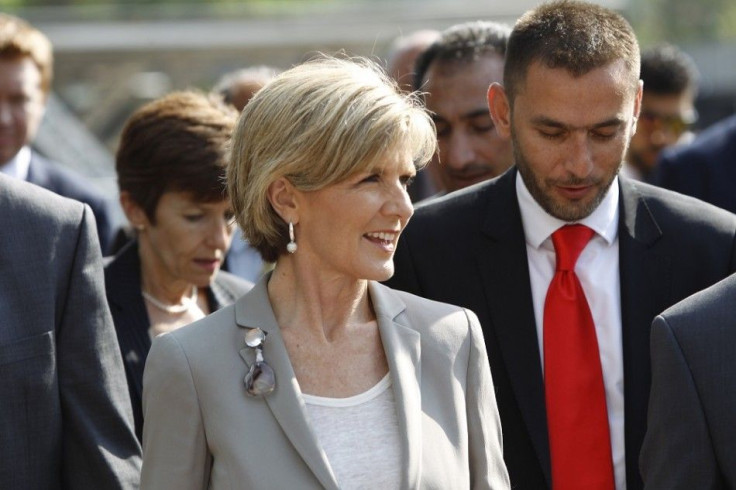Australia To Consider More Military Aid To Help Fight ISIS If Iraqi PM Asks

The Australian government will consider the sending of more weapons and equipment to Iraq to help prevent ISIS militants from gaining more ground. Foreign Minister Julie Bishop said that if the Iraqi government would request additional aid, Australia would likely contribute more.
The leaders of more than 20 countries are in talks in Paris to discuss strategies on how to fight ISIS. Bishop revealed she had one-on-one talks with Iraqi Prime Minister Haider al-Abadi before the summit. However, the Iraqi leader did not ask for more Australian troops.
“That was not specifically requested. He was talking about more weapons, more equipment, more training,” Bishop told ABC. She added that the Iraqi prime minister did not ask for more troops nor did she offer them but Australia would consider any request for military aid.
Before the meeting, Mr Al-Abadi said the advance of ISIS militants was a failure. He added that Iraq would need “all the support of the world” to counter ISIS. He rejected the doubts of U.S. Defence Secretary Ash Carter who previously said last week that Iraqi forces do not have the will to fight. The Iraqi prime minister said the country’s troops are prepared to fight. He added that more support was needed on the ground.
Bishop said Mr Al-Abadi is pleading to other countries who have not sent military aid. She added that she was confident of her view after her meeting with the Iraqi prime minister.
It would be a “long campaign” against ISIS, according to the U.S. deputy secretary of state Anthony Blinken. He said the U.S.-led coalition has the right strategy with a combination of coalition air strikes and training. Blinken believes it is a winning strategy.
Australia has about 330 troops in Iraq to help train the government forces. The non-combat mission is expected to last two years. Australian Prime Minister Tony Abbott has not ruled out airstrikes on Syria and said no final decision has been made, reports The Guardian. Bishop has promised to provide further aid to Iraq.
(To report problems or leave feedback on this article, contact: r.su@ibtimes.com)





















